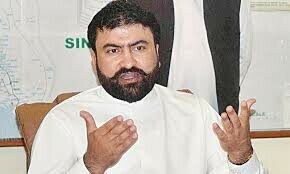
Balochistan’s budget for 2017/2018 indicates a latent desire to reform provincial government operations and expenditure to create space for increasing allocations for development as well as public service delivery.
One of the major drivers of the desire to change, become transparent and plug cash leakages and waste is the widespread expectation that the trade corridor being built under the $57 billion China Pakistan Economic Corridor (CPEC) initiative — connecting the landlocked north western China with the rest of the world through the deep-sea Gwadar port — will spur unprecedented economic activity in the province.
“In the near future, with the Gwadar port becoming operational and the advent of the CPEC, Balochistan can expect to see a massive influx of economic activity. The government is presently dedicating its resources to preparing both its infrastructure and its people to absorb this activity.
There is a dawning realisation upon Balochistan’s political elite that no government can execute its development agenda without protecting public finances and bringing transparency in the provinces’ expenditures
“Yet much is required in the shape of full dedication, enthusiasm and mobilisation of resources to address the people’s basic problems and keep their belief on the state apparatus alive,” reads the executive summary of the Balochistan White Paper 2017/2018.
At the same time, across urban Balochistan, middle-class households’ growing frustration with widespread corruption, deteriorating security conditions, almost non-existent social and economic infrastructure, and poor quality of public service delivery is also forcing the provincial administration to reform its operations.
There is a dawning realisation upon the province’s political elite that no government can execute its development agenda without protecting public finances and bringing transparency in its expenditures.
“We have too little financial space for financing our development agenda as you can see from the huge gap of over Rs52bn in our income estimates (of Rs276.4bn) and expenditure (of Rs328.5bn, including proposed development investment of Rs86bn) for the next year,” Balochistan’s Finance Minister Sardar Aslam Bizenjo told the post budget press conference.
“We cannot afford waste and leakages of our resources. Nor can we afford unnecessary spending. We must implement a strict fiscal discipline and restructure our tax machinery to raise resources for development and create jobs for the jobless youth.”
Balochistan contributes only 8pc to the national GDP (gross domestic product) despite its key location in the region and rich mineral resource base.
The provincial economy primarily depends on agriculture, transport and wholesale, and manufacturing. These three sectors contributed around 77pc to the provincial GDP during the last decade. This compares with 5.5pc contribution by the mining sector to the provincial economy.
The provincial finance managers argue that the provincial economy remained weak mainly because of low intensity Baloch insurgency and sectarian violence. Also, they point out, the province’s resources, like natural gas, were mostly spent in the past on the development of the rest of the country instead of Balochistan and its people.
At his post budget presser, the minister too lamented that Balochistan could never catch up with other provinces with the meagre resources it has for development in an area hit by low-insurgency and sectarian violence.
But he saw an opportunity in the successful completion of the multi-billion-dollar Corridor initiative. “It is going to be a game changer for the entire country in general and for Balochistan in particular,” he asserted.
Balochistan is known for massive corruption as well as for misuse and embezzlement of public money.
The case against former provincial finance secretary Mushtaq Raisani, who is alleged to have stashed away billions of rupees during his stint, has reinforced this perception.
The recent investigation launched by the provincial finance department with the help of NADRA to identify more than 30,000 ghost government employees has raised hope that the government has finally decided to take on the issue of corruption and waste of resources head-on. The initiative clearly reflects the desire to ‘change for the better’.
Additionally, the provincial administration plans to execute Public Financial Management (PFM) reforms with assistance from multilateral donors from next year.
This will help the province enhance its provincial own revenues, strengthen fiscal management, reform the development budget system, improve management of funds in the local government and so on.
Moreover, the budget also introduced a development budget calendar. The purpose is to ensure timely and effective utilisation of the funds available for public sector development spending.
Indeed, weak political will may slow down implementation of these reforms but it will be difficult for any government to reverse them.
Published in Dawn, The Business and Finance Weekly, June 19th, 2017














































Dear visitor, the comments section is undergoing an overhaul and will return soon.